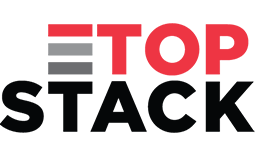How to Have a Successful First Week at a New Job

Starting a new job is stressful, fun, and exciting. You’re nervous and on edge, maybe not getting enough sleep. By the end of the first week, you may be overwhelmed with how much you need to learn and accomplish. These feelings are very common if it’s your first job or your fifteenth. But we have some tips to help you take it all in, while still hitting the ground at a steady pace.
Soak it All In
First of all, congratulations. You worked hard to get right where you are, which is part of the feeling of excitement you have when walking through the job to a new job. But get some perspective; your real job, in week one, is to be a sponge. Absorb, listen, and take it all in. You need to get the lay of the land politically (who has power, who are your bosses, how can you excel) and culturally (who will be your friend), but also how to communicate, who your teams will be, and even what office systems to use.
Take time to go to orientation and sign up for any classes or training. Attend to all the tedious but important HR paperwork. Then get the lay of the land by sitting in on meetings, observing, and listening. Go to any of the fun stuff they have for you; happy hours, lunches, and take the time to get to know your people.
Soaking in the new environment is the biggest job in your first week. The real work starts in week two, but for now, take time to get comfortable in your new home.
Exercise Caution
It’s going to feel tempting to take on the world in that first week. You’re feeling optimistic and excited. It will be easy to overcommit. While going to meetings and participating is important, you must also find balance by having quiet time at your desk. Do not set yourself up by thinking you can be “all things to all people” and get overwhelmed. Pace and take care of yourself by scheduling a short walk at midday to reflect on everything you’re learning. Or, put in your earbuds while sitting at your desk and writing down what you’ve learned. These techniques will help you find balance later on.
Ask Questions
Don’t be afraid to ask for help or ask questions. You need to learn and get up to speed fast. Your coworkers will expect you to ask lots of questions, and they should be more than happy that you’re engaged enough to ask. Write down everything, even if it seems mundane. It’s possible at some point your brain will be overwhelmed and start to shut down, making you forget important details. Try writing down everything you can. Then, on Friday of your first week, take time to rewrite your notes more slowly (and probably legibly) to review everything you learned that week.
Speak Up and Add Value
Feel comfortable adding insight when you can during this week. They hired you to add value to the organization, so when you have something to contribute, speak up. You won’t know everything, but maybe you’ll have an idea they haven’t thought of yet. Your willingness to participate in the success of the organization will be noted—and appreciated.
If you’re ready to experience the excitement of a new job, there’s no time like the present. Contact the professionals at TopStack. We have the best jobs in your industry and can help you with your goals.

















